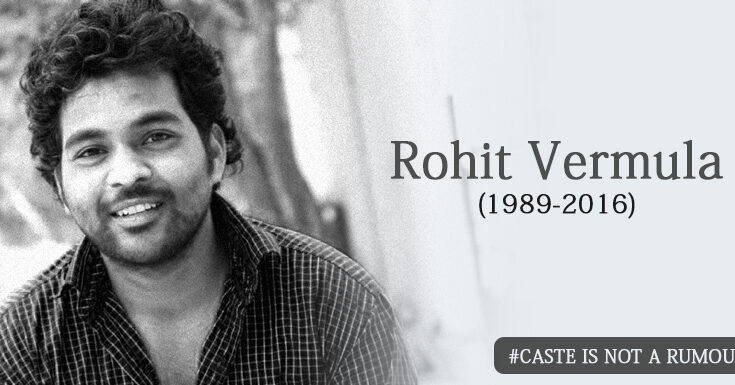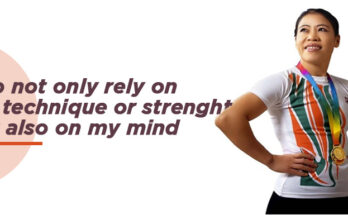Introduction
Casteism is very much prevalent in India since ancient times, and it is here to stay. It is a hereditary curse that is being transferred from generation to generation to oppress people like Rohith Vemula. Even though attempts are being made to bridge the gap between caste, religion, class, gender, and race, still, this exercise persists in India. Caste plays a prominent role in inducing hate, violence, and deaths among the people.
As per the World Health Organization, health is not only the physical wellbeing of a person but also the mental as well as social wellbeing of a person. This discrimination oppresses lower-caste people and also affects their health simultaneously: it makes them weak and caged under the burden of differences.
About Rohith Vemula
One such example is the despairing suicide case of Rohith Vemula: a Ph.D. scholar at the University of Hyderabad, whose sudden death left a lot of ambiguities. He was found hanging in his hostel room on the campus on the 17th of January, 2016. He was one of the five boys who faced allegations of attacking an Akhil Bharatiya Vidyarthi Parishad (ABVP) leader. ABVP is the student wing of the BJP.
Rohith Vemula was a renowned member of the Ambedkar Students’ Association (ASA) and fought for the rights of Dalit students on the campus. Imagine the scenario where you have to fight for basic rights just because you are from a different caste, class, or creed! What else can be more disheartening than this?! He, along with other five boys had to protest against their deportation from the housing facility of the university. However, this did not stop here. He ended up committing suicide owing to the harassment he had to face since childhood.
After his death, his last letter was a witness that he had been institutionally harassed. Investigation into this was rejected even after the continuous demands for it by his community members. As per news, his death was the result of depression, but what’s much more important is the cause of this depression. Every flag-bearer of caste discrimination and hatred must be blamed for this. He was merely 26. Imagine what all he had to go through to take such a step! This thought is really scary, but what’s scarier is that the authorities are quick to investigate the deaths of prominent individuals like Sushant Singh Rajput, but when it is a matter of common people, nobody cares!
Vemula’s suicide note
Vemula, in his suicide note, mentioned his “birth as a fatal accident”. He also mentioned in the very first line of his letter that please don’t get angry with him, as he knew whatever he was doing was wrong and will make people who genuinely cared for him unhappy. However, he was not blaming anybody for his situation; rather, blaming himself and calling himself a “monster”.
He laid stress on how he felt that the mind and soul are two different things: he was feeling a wide gap between the two. In this letter, he continuously questioned his capability and his existence. The way he wrote the letter and his choice of words depicted his eternal love to be a writer. He had been suffering throughout his life owing to differences. He wished to be a writer of science, but the only letter that he could write was his suicide letter. In this world full of materialism and apathy, feelings are second-handed.
“My first time of a final letter”, he emphasized this to show the depth of his suffering and to give meaning to the letter. He was sad that he had wrongly understood the world; not everything in life was as simple as it seemed, and it was not a straight path that we all hope for in our life. As per him, we judge people without knowing them and judge the world without experiencing its different paths. He blamed himself for being mistaken in understanding the world.
He did not care if somebody called him a coward or a stupid person after his death; all he cared about was to travel the stars in serenity after he was gone. To travel the stars may genuinely mean his understanding of becoming a star after a person dies, or it can also refer to his willingness to become a writer of science.
In addition, he also mentioned that he desired his funeral to be silent and smooth and did not want anyone to shed tears. He wanted to give a sign to his loved ones that he was happy being dead than being alive, capturing the intensity of his gloom. “I am not hurt at this moment. I am not sad. I am just empty. Unconcerned about myself. That’s pathetic. And that’s why I am doing this.” The statement also highlights that he agonized to the extent that he refused to accept being hurt.
“My birth is my fatal accident. I can never recover from my childhood loneliness. The unappreciated child from my past.’’ He had continuously emphasized these lines to add more understanding to it. We can say that he had a strong conscience, but, at the same time, he felt quite insignificant. This is shown in the last lines, where he mentioned that he wanted to do this for himself and nobody had instigated him to take this step.
Key-takeaways
The only key takeaway from this case would be to build a world with the firm foundations of equality, along with love and kindness. A world where no one faces discrimination and no one commits suicide: where no one would be in the shoes of all the people like Rohith Vemula.




